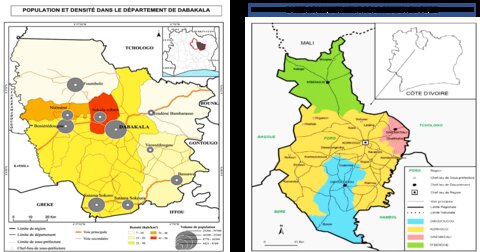Ivory Coast

Based on the new World Health Organization guidelines for Malaria, Cote d’Ivoire was found to be eligible for implementing SMC. The country therefore adopted SMC for children under 5 years. 28 districts in the country were found to be eligible for SMC. The NMP piloted two cycles of SMC in Dabakala and Dikodougou districts via the door-to-door community-based strategy. The coverage target was 80% of the children aged five years and below. In addition to SMC, other activities such as malaria screening were organized. Planning meetings at several regional levels were held with PMI, PSI, Mali, and Cameroon supporting Cote d’Ivoire in the implementation of SMC.
Out of over 61 000 children targeted, 72% were covered. Coverage was evaluated using a rapid assessment test. Many children were absent during the first day due to farming activities as parents took children to farms. In contrast, on the second day, most children were present to receive SMC. The implementation of SMC was also digitalized.
Challenges and areas of improvement
Challenges
Some mothers forgot to administer the medicine to their children.
Some children were also reluctant to take the medicine.
There is a need for a strategy to reach children who are absent during the administration of SMC.
It would be helpful to expand SMC to cover more districts; this will however require more resources. All segments of the community must also be involved.
Areas for improvement
- Having permanent communication with the population during the SMC implementation period would be helpful;
- Developing advanced strategies for the administration of medicines to children in camps by CHWs would be useful.
- Three doses of medication per cycle must be observed;
- Increase training time on digitalization to enable volunteers and community health workers to master usage of the tablets;
- Availability of sufficient human resources for good coverage of enumeration and distribution.